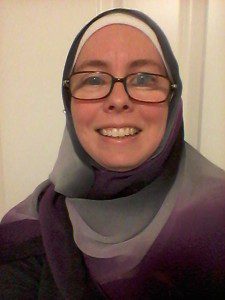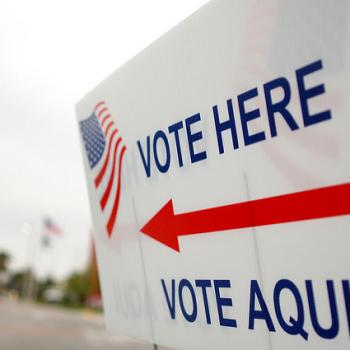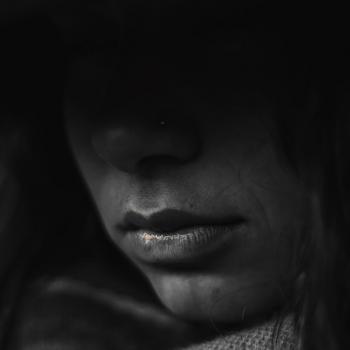This is Day 27 of the #30Days30Writers 2016 Ramadan series.
By Laura P.
As I let myself into my apartment, the clock showed 1 a.m. A sister at the mosque had just dropped me off at home after tarawih – two hours of prayer on these Ramadan nights. I have a strict rule not to check social media or messages during the night unless it’s a family emergency, so I was unaware a major news story was breaking in Orlando, Florida, at that hour.
Instead, I had a bit to eat and drink, made sure everything was ready for the pre-dawn meal, offered my pre-bedtime dhikrs (remembrance of Allah), and settled in bed to rest for about half an hour. Then it was up again to pray and eat, start my fast at 3 a.m sharp, and offer the fajr dawn prayer.
Grateful that it was a Sunday and I didn’t have to work, I went back to bed and slept in late, finally waking around 11 a.m. In the 12 hours since I’d last checked anything online, an Afghan-American Muslim named Omar Mateen had opened fire in a gay nightclub in Orlando, killing 49 people and wounding dozens more.
My first inkling of this was an email from a Muslim crisis response list that was waiting in my inbox.
As I scanned news headlines, my insides twisted with the complex tangle of emotions I always feel after a major terrorist incident. Sadness and grief for the victims. Anger – and often also despair and hopelessness — at yet another extremist hijacking and perverting our religion. Fear of backlash against Muslims.
Guilt too, sometimes, at not being able to focus only on the victims and their tragedy.
But as the true scope of the Orlando shootings and their homophobic motivation became clea,r and as I watched responses from American Muslim groups, LGBTQ groups and right-wing politicians, a wave of new emotions hit me.
I’m asexual, meaning I don’t experience sexual attraction to anyone and am not interested in sex. Because of how my asexuality has marginalized me in society and in Muslim spaces, because of how Islamic orthodoxy would mark me as deviant and worthy of punishment if I married and because I’m emotionally and relationally oriented towards other women, I identify as queer – outside of heterosexual norms – and consider myself to be part of the larger LGBTQ community.
In the wake of the massacre in the Pulse nightclub, two key parts of my identity – my Islam and my queerness – seemed at war. Not in myself – to me, my Islam and my queerness are intertwined in a whole, integral identity – but as others sought to tear me apart.
I watched Muslim leaders and groups talk as if Muslim and LGBTQ were mutually exclusive groups. I noticed who edged around the LGBTQ identity of the Pulse nightclub victims and who was completely silent as if this was any other shooting and these were any other victims. Online, as I tweeted about the intersection of Muslim and LGBTQ identity, I received homophobic messages from self-identified Muslims.
I watched LGBTQ leaders and groups also talk as if LGBTQ and Muslim were mutually exclusive groups. I saw sweeping generalizations about LGBTQ experiences that left no space for me as a devout Muslim. Not all of us were out clubbing Saturday night. Some of us were at the mosque, praying tarawih after breaking our Ramadan fast.
And, I watched right-wing politicians – many of whom had been promoting anti-LGBTQ laws just the previous day – using the Orlando shootings to depict Islam as uniquely homophobic and violent in order to further their Islamophobic agenda.
At the same time that I was receiving homophobic messages on social media from some Muslims, I found myself targeted by right-wing Islamophobes as well, trolling that greatly intensified after I participated in an LGBTQ-affirming hashtag campaign and declared my queer Muslim identity a source of pride.

The toxic mix of Islamophobia, racism, misogyny, homophobia and anti-asexual prejudice that followed made me acutely aware of how complex my intersecting identities are, and how many people do not want me to exist in the particular, unique way that I do.
I felt sliced in two by these external pressures — that I was being asked to choose sides, to align myself with only one identity and community and erase or reject the other. I can’t do that. My asexuality is, I believe, innate, a lifelong orientation that cannot be changed.
As a convert, my Islam was a choice, and I will not abandon it. My faith is central to my life and putting my trust in Allah has gotten me through some of the toughest challenges I’ve faced.
More than that, for the last 17 years I have chosen to visibly affiliate myself with Islam through my hijab. Showing up with and for Muslims is part of my commitment to justice. I will not stop doing so because others, both Muslim and not, try to define Islam and LGBTQ identity as incompatible.
That Sunday night I was at the mosque again, wearing a hijab in the colors of the asexual pride flag, seeking solace in Allah for my shattered heart, asking for His forgiveness, guidance and healing. This is where I stand, as my whole self, and this is where I will stay.
Laura P is a convert who lives near Seattle. Her writing has appeared at Love InshAllah, altMuslimah, Hindtrospectives, and Patheos altmuslim. She volunteers with the Muslim Anti-Racism Collaborative and with Rabata. Follow her on Twitter at @muhajabah.












